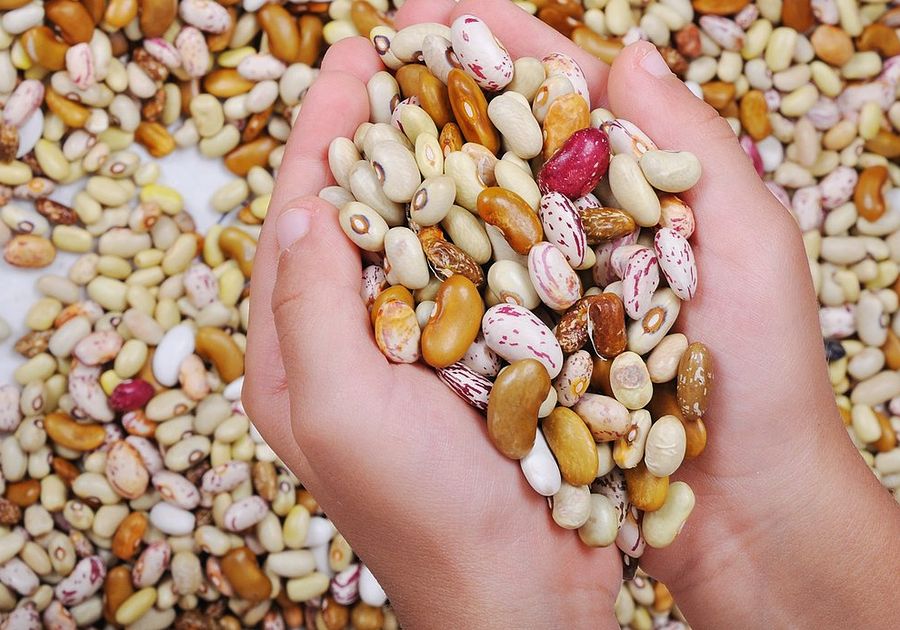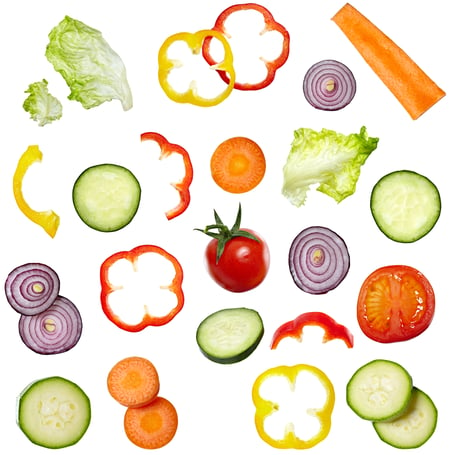
What are the foods to avoid with PCOS?
When it comes to PCOS, the foods to avoid are foods that are generally classified as "unhealthy". Women with PCOS often times also experience insulin-resistance. Insulin is the hormone released to help balance out blood sugar after a spike. With insulin-resistance, the insulin is still produced, but the body is not able to utilize it properly, causing high levels of insulin in the blood.
For this reason, foods that cause a drastic spike in blood sugar such as highly processed and refined carbohydrates, sugary beverages, baked goods, alcohol, and foods with high amounts of saturated or trans fats should be avoided.
Aside from causing a drastic spike in blood sugar, and ultimately causing elevated insulin levels, these foods tend to be void of nutrients. Women with PCOS often struggle to maintain a healthy weight. Good nutrition is the key to healthy weight maintenance.
Not quite sure what foods to swap out of your diet? Check out our suggestions below for something more nutritious that will help you better manage your PCOS.
For PCOS, Eat This... Not That!

Complex Carbohydrates VS. Refined Carbohydrates
Refined carbohydrates are known to cause inflammation and produce a drastic spike in blood sugar, which can exacerbate insulin resistance. They also tend to be low in nutrients, since the parts of the grain that contain fiber and nutrients are removed during the milling process.
Complex carbohydrates, on the other hand, provide a slower release of blood sugar due to their fiber content. They also contain many more nutrients than refined carbohydrates. Due to their fiber content and greater nutritional value, complex carbohydrates aid in weight maintenance, which is beneficial for women with PCOS.
Check out these sources of complex and refined carbohydrates:
| Complex Carbohydrates | Refined Carbohydrates |
|
Quinoa Lentils Beans Oats Winter Squash Fresh Fruit Whole Grains |
White rice Sugary Beverages White Pasta White Bread Baked goods Sugary Breakfast Cereal Added sugars |
Sugary Beverages VS. Sugar-Free Beverages
To help with insulin resistance, it's recommended that women with PCOS avoid sugary beverages. Unfortunately, research shows that women with PCOS tend to crave sugar in general due to higher insulin levels. The good news is, we have some great tips and tricks to help satisfy your craving for something sweet other than your typical sugary beverages!
- Electrolyte Enhancer: Instead of sports drinks, try adding a squirt of a flavor/electrolyte enhancer like Mio to your water. This drink would be comparable to gatorade in taste and electrolyte content, but without the added sugar that typically causes insulin levels to rise.
- Unsweetened Tea: Instead of sweetened teas, try an unsweetened tea with added citrus or herbs for flavor. For example, black tea with added lemon and mint makes a refreshing, sugar-free drink!
- Mock-tails: Instead of soda or alcohol, try making a mock-tail with seltzer water or unsweetened tea as the base with fresh fruits, vegetables, or herbs for added flavor! Seltzer water with fresh cucumber and mint is our favorite.

Saturated Fats VS. Unsaturated Fats
While fat intake will not necessarily have a direct impact on blood sugar and insulin levels, it is extremely important to maintaining a healthy weight. Overall fat intake is important to consider. Your nutritionist or dietitian will make sure you're getting the right amount of fat for your diet. However, not all fats are created equal! Certain fats are healthier for our bodies than others.
Unsaturated fats are considered "good fats". Research shows that unsaturated fats help lower the risk of developing heart disease and since unsaturated fats are typically found in more nutritious food, they inherently help with weight maintenance as well.
Saturated fats on the other hand, are considered "bad fats". Research shows that saturated fats increase the risk of developing heart disease and since saturated fats are typically found in more processed foods, they tend to make it more difficult to maintain a healthy weight.
Check out these examples of unsaturated and saturated fats:
| Unsaturated Fats | Saturated Fats |
|
Olive oil Avocado Olives Nuts Seeds Fatty fish like salmon
|
Butter Red meat Cream Coconut oil Lard Cheese |
![]()
The Bottom Line...
Just like many other conditions, your best bet with PCOS is to eat a well-rounded, nutrient-dense diet. Remember these tips to help manage your PCOS:
Whenever possible, choose:
- Complex carbohydrates over refined carbohydrates
- Unsweetened beverages over sweetened
- Fresh foods instead of pre-packaged foods
- Naturally sweet foods such as food instead of sugar and other sweeteners
- Unsaturated fats over saturated fats
To read more about foods to avoid, foods to eat and how to make easy changes as part of a healthy PCOS diet, download our PCOS Nutrition Guide.

Kaitlyn Willwerth is a Registered Dietitian at OnPoint Nutrition. Kaitlyn's work focuses on providing individualized health and lifestyle coaching and, most importantly, support. She is a Certified LEAP Therapist and has also completed the Monash University 'Low FODMAP Diet for IBS' online training course for health professionals.




